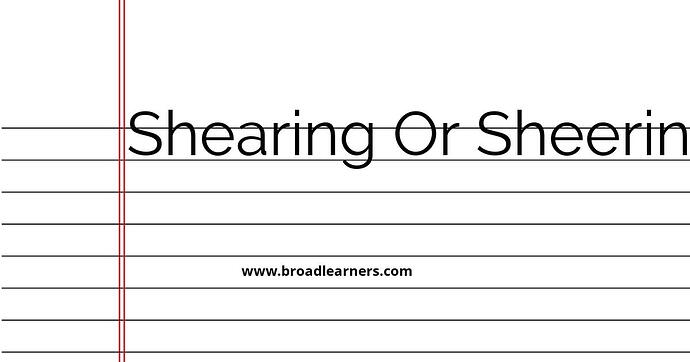'Shearing', 'sheering', and 'shearing' are commonly confused words in English grammar. Understanding the difference between these words is important to use them correctly in written and spoken English.
Let's take a closer look at the meanings and usage of 'shearing', 'sheering', and 'shearing'.
| 'Shearing' | 'Sheering' | 'Shearing' |
|---|---|---|
| The word 'shearing' is a noun that refers to the act of cutting or clipping something, especially wool from a sheep. | The word 'sheering' is a verb that means to deviate or swerve away from a straight course. | The word 'shearing' is a noun that refers to the act of removing or cutting off something, such as hair or vegetation. |
|
|
|
To remember the difference between 'shearing', 'sheering', and 'shearing', it can be helpful to think about their meanings and context:
- 'Shearing' is about cutting or clipping, especially wool from sheep.
- 'Sheering' is about deviating or swerving away from a straight course.
- 'Shearing' is about removing or cutting off something, like hair or vegetation.
Here are some examples of correct usage:
- The annual shearing of the sheep produces a great amount of wool.
- The car sheered off the road and crashed into a tree.
- The gardener did a fantastic job with the shearing of the hedges.
Remembering the correct usage of 'shearing', 'sheering', and 'shearing' will improve your grammar and communication skills.
